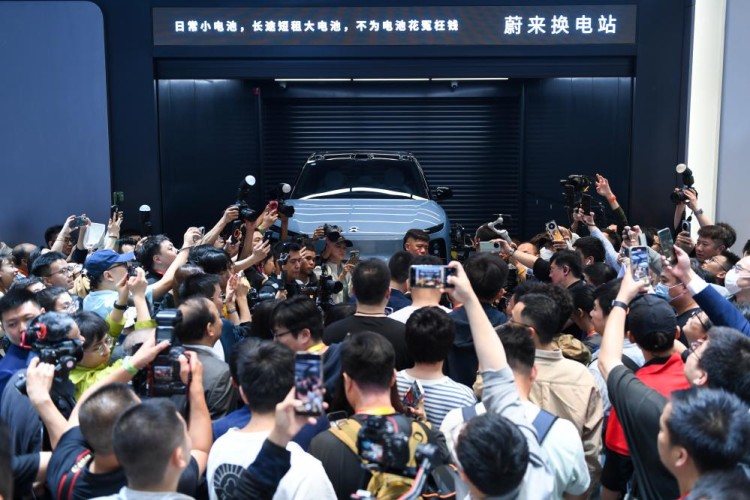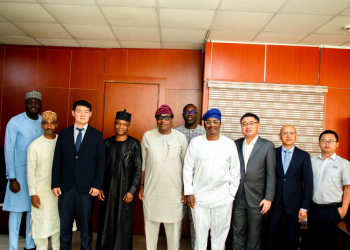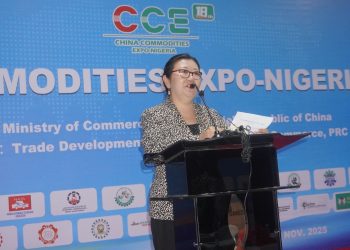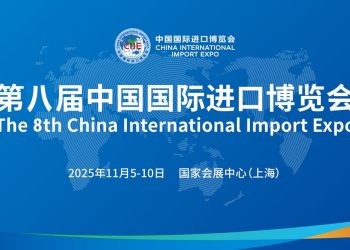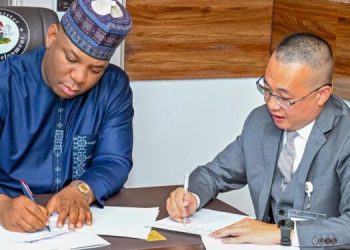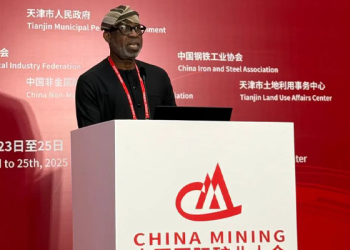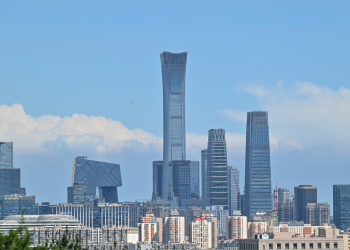The hype by the United States and some European countries about China’s “overcapacity” in new energy vehicles (NEVs) deliberately distorts the logic of industrial development and serves as an excuse for implementing its trade protectionism.
Such claim does not align with the actual situation of China’s industrial capacity and lacks recognition of the rapid growth of China’s EV market.
In fact, the high cost-effectiveness of China’s NEVs stems from the comparative advantages brought about by fully competitive markets, technological innovation, and the clustering effect of industrial chains.
“OVERCAPACITY”? NOT EVEN CLOSE
“Overcapacity might result in vast parking lots filled with unsold cars,” Bloomberg reported recently. Chinese automakers’ inventories “don’t look high,” and data on dealers’ inventories from China’s car dealer association also doesn’t show an unusual increase, it said.
In fact, in recent years, the top ten automotive companies in China have significantly higher capacity utilization rates than the industry average.
An opinion piece from Just Auto, a London-based magazine providing global automotive industry news and analysis, shows that in 2023, the capacity utilization rates of auto companies in China such as BYD Group, Tesla’s Shanghai factory, and SAIC Group were around 80 percent. In comparison, Hyundai Motor’s capacity utilization rate was only 23 percent, and Kia Motor’s was only 25 percent.
Cui Dongshu, secretary-general of the China Passenger Car Association, told reporters that as a nascent industry, the new energy vehicle sector exhibits relative capacity fragmentation.
Assessing whether there is overcapacity, one should take into consideration the capacity utilization rates of leading enterprises. The outdated and low-end capacity in smaller companies should not be factored in, as this portion of capacity will also be “cleared” as market competition intensifies, Cui said.
Analysts suggest that the so-called “overcapacity” in China’s NEV sector is largely a “numbers game.” For instance, some companies produce both EVs and traditional fuel-powered vehicles. As sales of fuel-powered cars decrease with the expansion of the EV market share, certain Western individuals include this ultimately obsolete capacity in the total number of China’s automotive industry.
Furthermore, capacity construction is a dynamic process influenced by cyclical factors. The rapid growth of China’s NEV market demands proactive capacity planning. Considering future development, there is generally no issue of “overcapacity” in the new energy vehicle sector as a whole.
Ferdinand Dudenhoeffer, director of the Center Automotive Research Institute in Bochum, said that the Chinese electric vehicle market is far from saturated and will continue to maintain a faster and stronger growth momentum compared to the European and American markets.
Manufacturers are achieving cost reductions and efficiency improvements through economies of scale. The European Union’s investigation into Chinese electric vehicles’ “subsidies” and “dumping” is untenable, Dudenhoeffer said.
A senior executive from the renowned tire manufacturer Continental Tire, a subsidiary of Germany’s Continental AG, dismissed the notion of “overcapacity” from the perspective of market growth. According to this executive who spoke on condition of anonymity, the company plans capacity based on the actual annual growth rate of 5 percent to 6 percent in the Chinese market. Therefore, there won’t be any surplus, and there is still a need for further investment to expand production.
The United States and Europe often hype up the idea of overcapacity in China’s electric vehicle industry, and they frequently consider planned but not yet operational capacity as actual capacity.
Xia Yingsong, chairman of Anhui Zhongding Sealing Parts Co., Ltd., told reporters in Ningguo City, Anhui Province, that the company continuously adjusts actual capacity in response to market changes. Equating planned capacity with actual capacity and drawing conclusions of “overcapacity” based on this is scientifically unsound.
COMPETITIVE EDGE
Some Western countries accuse the Chinese government of providing substantial subsidies to the NEV industry, leading to the export of “cheap electric vehicles” from China to global markets and causing distortions. Both domestic and foreign industry insiders generally believe that this is a misinterpretation of China’s competitiveness in this industry.
Yang Jian, chairman of Lanzhou Guangtong New Energy Automobile Co., Ltd., told reporters that subsidy-dependent companies lack vitality and cannot survive in intense market competition, let alone achieve success in international markets.
Tang Jin, a senior research officer at Mizuho Bank who is familiar with the Chinese automobile market, said that studying the Chinese electric vehicle market would reveal that the claims attributing China’s automotive success in the global market to subsidies are unfounded.
Tang pointed out that the Chinese market is the most fiercely competitive globally, nurturing competitive industry supply chains on a global scale through natural selection. This, he said, is the primary reason why Chinese NEVs can prevail in terms of cost-effectiveness.
Today, the regional industrial chain and supply chain system of China’s NEVs has formed an industrial ecosystem driven by complete vehicle enterprises, supported by advanced intelligent networked industry chains, and efficiently guided by industrial policies.
Taking Hefei city of Anhui Province as an example, it boasts six major complete vehicle enterprises and an industrial cluster with an output value of over 100 billion yuan (about 13.8 billion U.S. dollars). It possesses strong production capabilities in related products such as displays, chips, artificial intelligence, and batteries.
In recent years, Volkswagen Group has established a complete vehicle manufacturing base in Hefei, set up a wholly-owned research and development company, and constructed a battery system factory, aiming to transform the city into an advanced production, research, and innovation center for NEVs outside of Germany.
According to statistics from JATO Dynamics, a London-based global automotive market research company, since 2015, the average price of EVs in Europe has risen from 49,000 to 56,000 euros (about 52,555 to 60,063 U.S. dollars), in the United States from 53,000 to 64,000 euros (about 56,845 to 68,643 dollars), while that in China has decreased from 67,000 to 32,000 euros (71,861 to 34,321 dollars).
Some foreign media cite instances of Chinese electric vehicle companies engaging in price wars and some companies going bankrupt as evidence of “overcapacity” in the entire industry. Xia said that price adjustments are a response strategy adopted by companies to market changes, reflecting market strategies, and cannot prove this theory.
The closure of some NEV companies is part of the “market clearing” process, a result of normal market competition and natural selection, which precisely demonstrates that China’s industrial advantage is the outcome of full competition, said Xia.
Ji Xuehong, director of the automobile industry innovation research center at North China University of Technology, told reporters that nowadays, it is actually the United States, Britain, and France that are implementing more robust subsidy policies in the field of new energy vehicles.
The U.S. government is providing approximately 369 billion dollars in tax incentives and subsidies for clean energy industries, including NEVs, through the 2022 Inflation Reduction Act, Ji said. “Countries such as France, Italy, and Canada have also introduced similar policies,” Ji added.
A COVER FOR PROTECTIONISM
Industry insiders and experts interviewed believed that the real motive behind the hype about the “overcapacity” theory in China is that the United States and Europe find it hard to face growing strength of the Chinese EV industry.
They are concerned about losing their advantage in the automotive industry competition.
Tang believes that the United States and Europe are putting forward the so-called “overcapacity” theory to safeguard their own interests and position themselves more advantageously in the game.
In fact, the market share of Chinese domestic brand car companies in the European market is still relatively low. Taking examples of Chinese new energy vehicle brands BYD, Great Wall Motors, and NIO, which have been included in the EU’s anti-subsidy investigation, data indicate that these three companies collectively hold only 1.1 percent of the European market share.
Jiang Xiaowei, chief analyst of the auto sector at Huaan Securities, pointed out that the Chinese NEVs with higher market share in Europe often come from companies with American or European capital backgrounds.
For example, Tesla electric vehicles produced and exported to Europe from the Tesla Gigafactory Shanghai are also counted as Chinese-exported NEVs to Europe.
Additionally, companies like SAIC Motor’s MG and Geely’s Lynk & Co have foreign capital backgrounds and are not wholly Chinese-owned car companies. These companies’ overseas expansion benefits from the support of their foreign capital partners and their profits are also reinvested through capital means to support their foreign partners. Therefore, claims that the Chinese car companies monopolize the European market are by no means true.
The price advantage of Chinese NEVs does not distort the market; rather, it provides a solution for Europe to achieve its energy transition goals, said experts.
In Europe, due to the slow transition of traditional fuel car manufacturers to electrification, policy changes, and uncertainties in consumer demand, the popularization of NEVs is slower than expected.
Nicolas Dworak, a commentator for the Austrian daily Der Standard, believes that China’s provision of more affordable electric vehicles helps to stimulate the shift in demand.
The Neue Zuercher Zeitung, a Swiss daily newspaper published in Zurich, recently published an article saying that the decarbonization process requires massive investment. High-value-for-money Chinese NEVs, through healthy competition, are prompting European automakers to enhance their innovation capabilities and technological levels. Ultimately, consumers will be the ones to benefit.
Ola Kallenius, chairman of the board of management of Mercedes-Benz Group, stated that protectionism will not lead to long-term success, and the European industry should respond to challenges with better products, better technology, and greater flexibility.
“If we seek wealth in increasingly severe protectionism, we are on the wrong path,” said Kallenius.





























